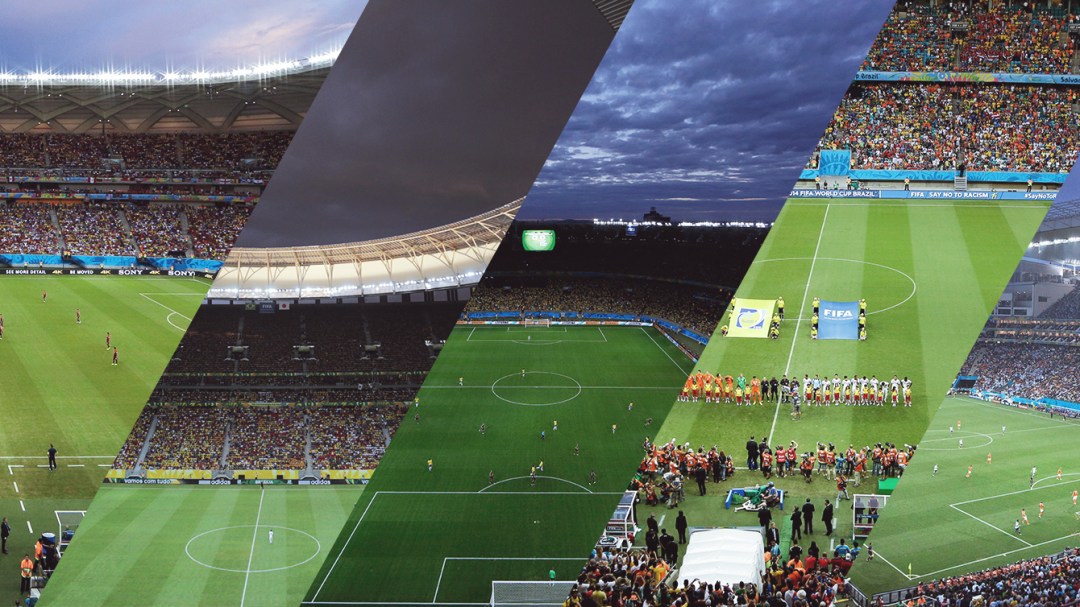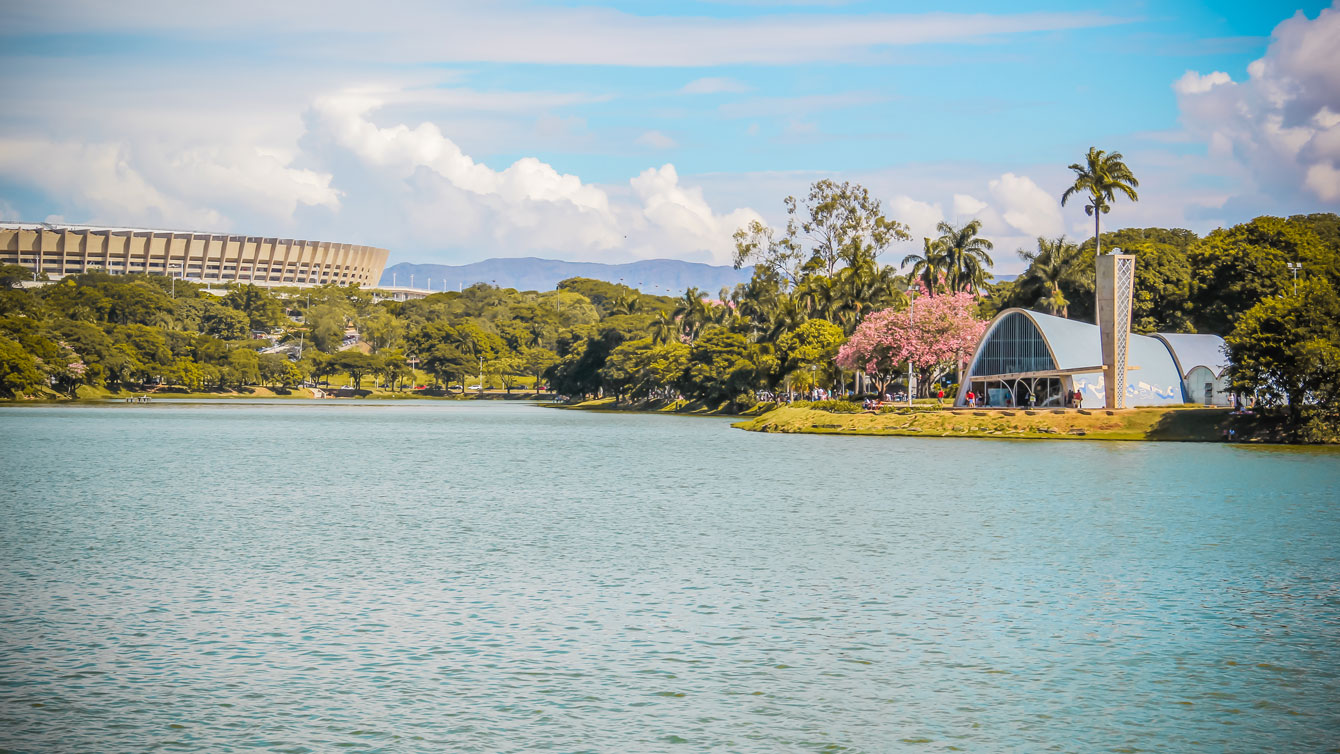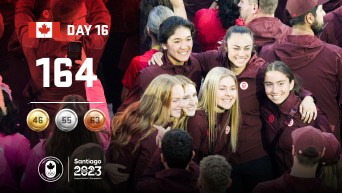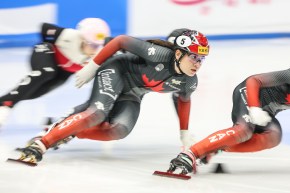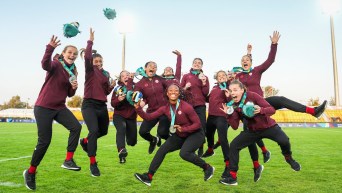Get to know the 5 Rio 2016 football co-host cities
Rio 2016 is not only about Rio de Janeiro. Belo Horizonte, Brasília, Manaus, Salvador and São Paulo will get in on the Olympic action this summer as co-host cities for exciting men’s and women’s football games.
The Canadian women’s team will face great challenges in the group stage at Corinthians Arena (São Paulo) and Mané Garrincha Stadium (Brasília). In case of making the knockout stage, Team Canada may play at Fonte Nova Arena (Salvador) or Mineirão Stadium (Belo Horizonte). Other national teams will also have matches at Amazônia Arena (Manaus). Want to know more about these cities? Check out this list and go pack your bags!
Belo Horizonte
Belo Horizonte is the state capital of Minas Gerais. With a population of 2.5 million, “Beagá” (Bey-a-ga), as the city is known by its residents, is home of Mineirão Stadium, which hosted the first semifinal match of the 2014 FIFA World Cup between Brazil and Germany. The infamous game (Brazil lost 7-1) is referred to as Mineirazzo.
The matches: women’s group stage – United States v. New Zealand, France v. Colombia, United States v. France and Colombia v. New Zealand; men’s group stage – Algeria v. Portugal and Germany v. Fiji; quarterfinals; women’s semi-final; men’s bronze medal match.
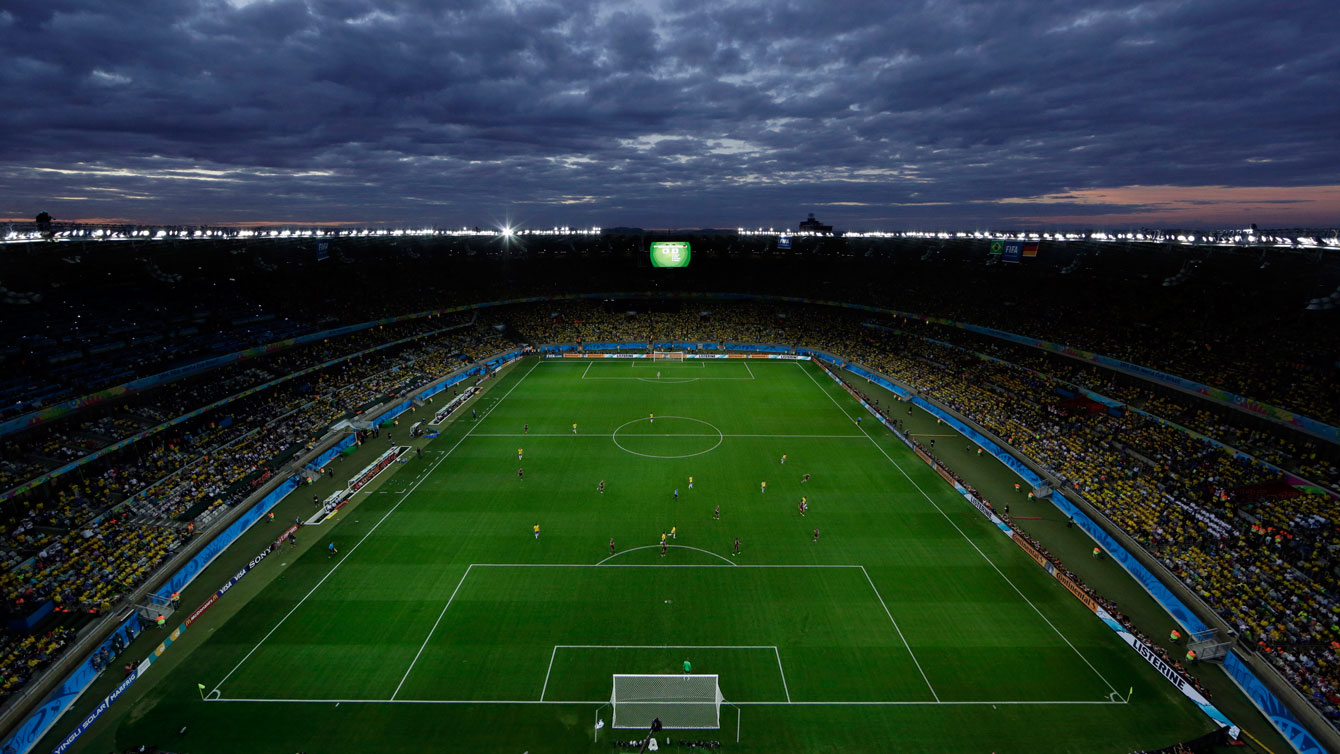
Mineirão Stadium, Belo Horizonte, Brazil
What to see: before or after the game, there’s nothing better than touring the Mineirão Stadium surroundings. Jog around the Pampulha Lake, drop by São Francisco de Assis Church or visit the Inhotim, a contemporary art museum located in Brumadinho, the metropolitan area of city.
What to eat: the one and only pão de queijo (“cheese bread”), a popular breakfast item and snack typically from Minas Gerais, is loved all over the country.
Brasília
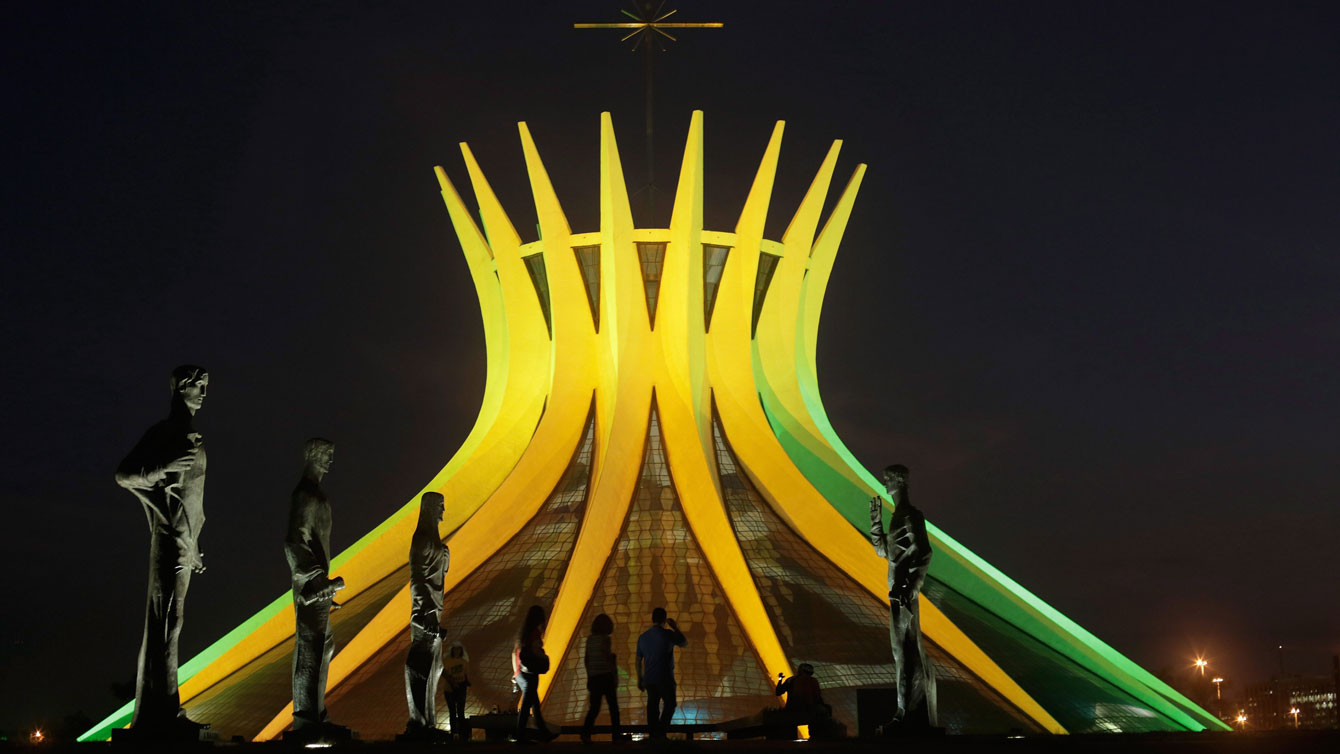
Cathedral of Brasília was designed by Oscar Niemeyer
With population of 2.4 million, the capital of Brazil was planned and constructed in 1956 in order to move the country’s capital from Rio de Janeiro to a more central location.
The matches: men’s group stage – Iraq v. Denmark, Brazil v. South Africa, Denmark v. South Africa and Brazil v. Iraq; women’s group stage – Germany v. Canada and China v. Sweden; quarterfinals.
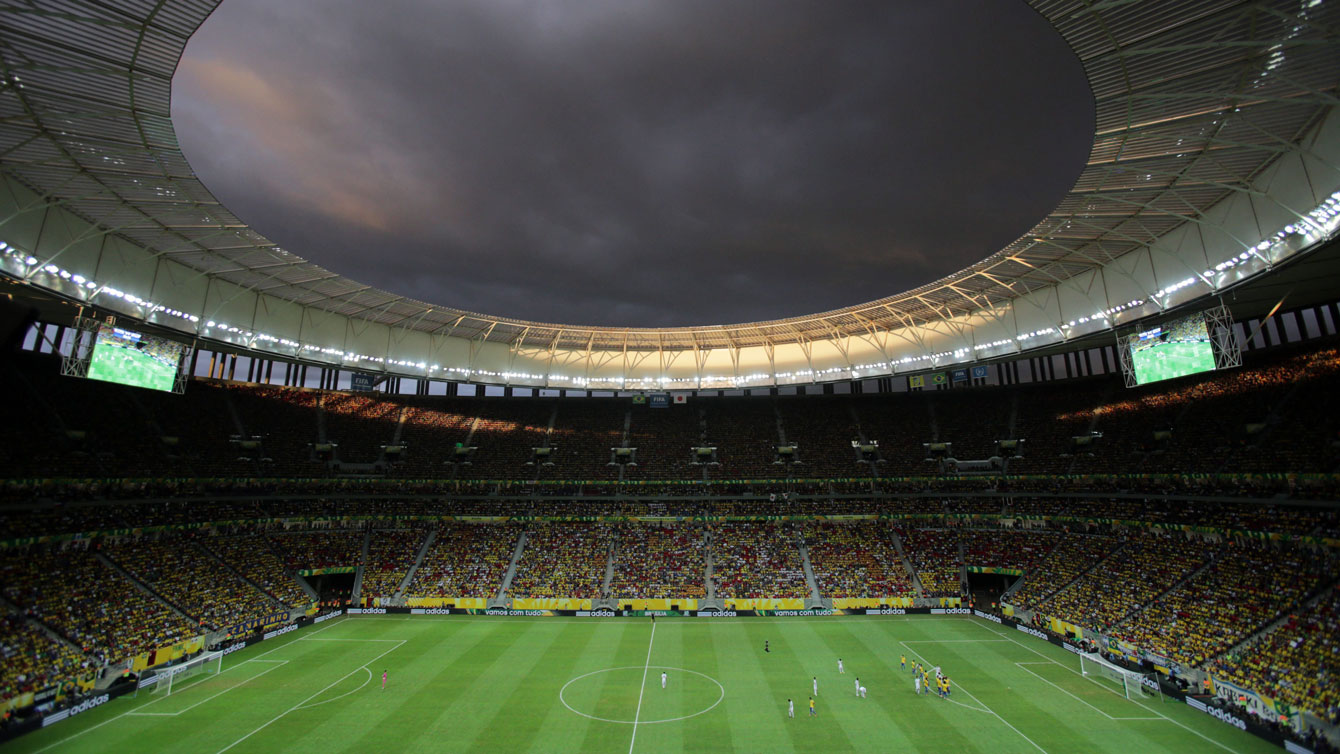
Mané Garrincha Stadium, Brasilia, Brazil
What to see: get to know the three most important government buildings at Praça dos Três Poderes (Three Powers Plaza), including the presidential office Palácio do Planalto, the National Congress and the Supreme Federal Court. Architecture-lovers should also visit Cathedral of Brasilia, a hyperboloid structure designed by Oscar Niemeyer.
What to eat: Brasilia is not known for any one particular food, but you can visit Feira da Torre, where you can try delicious items from all over the country.
Manaus
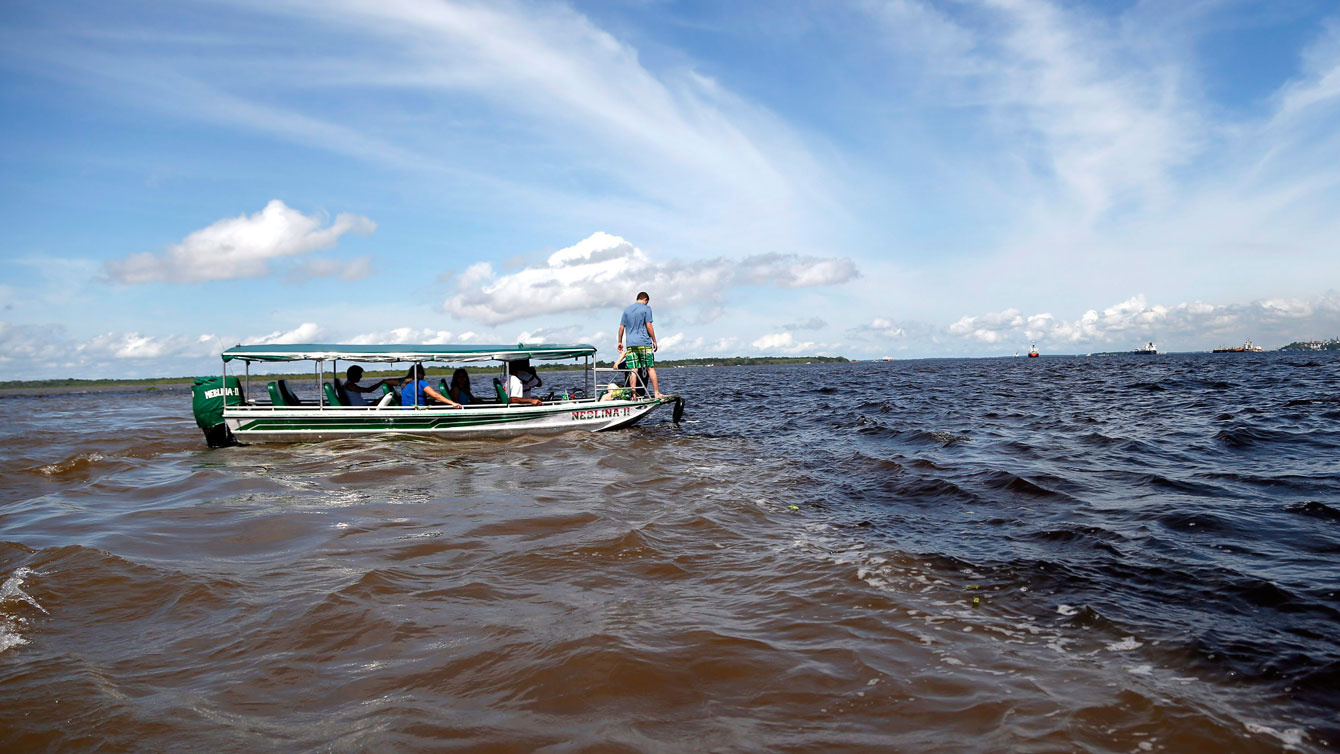
Meeting of waters, the confluence between Rio Negro and Amazon River
The state capital of Amazonas, with population of 2 million, Manaus is considered the entrance door to the biggest ecological reservation in the planet: the Amazon rainforest.
The matches: men’s group stage – Sweden v. Colombia, Nigeria v. Japan, Sweden v. Nigeria and Japan v. Colombia; women’s group stage – Colombia v. United States and South Africa v. Brazil.
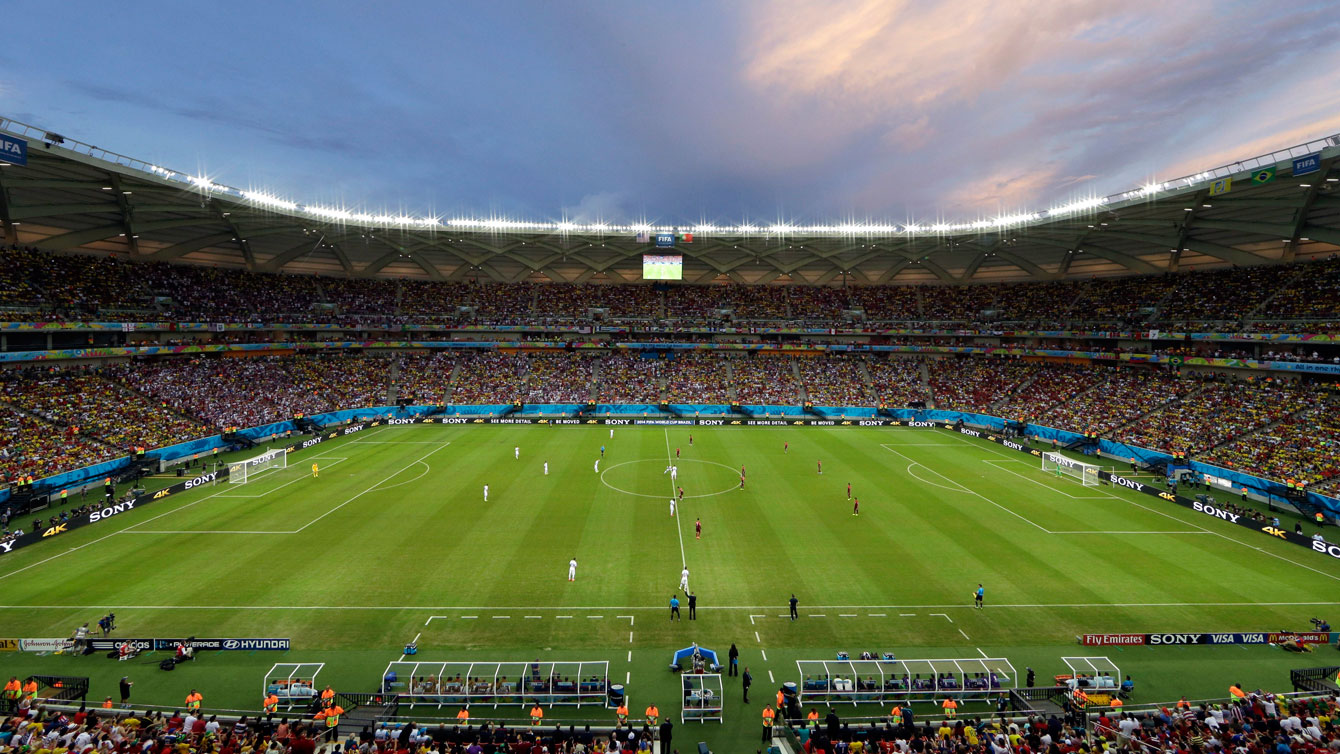
Arena da Amazônia, Manaus, Brazil
What to see: the breath-taking Meeting of Waters, which is the confluence between the dark-watered Rio Negro and the sandy-coloured Amazon River, is a major tourist draw. The traditional Amazon Theatre, an opera house built during the Belle Époque and inaugurated in 1896, is also a must see.
What to eat: there’s nothing more regional than Tacacá, a hot soup made with jambu (a native variety of paracress) and tucupi (a broth made with wild manioc) as well as dried shrimps and small yellow peppers.
Salvador
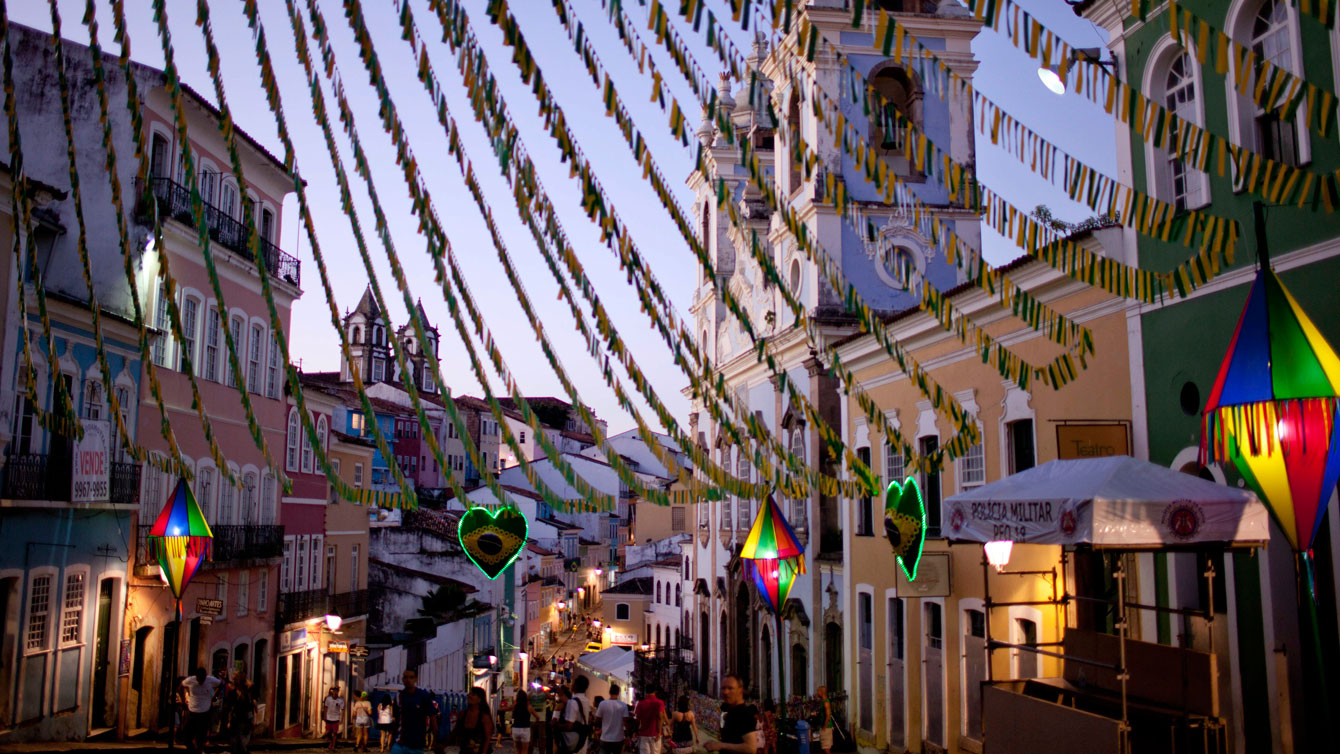
Pelourinho, historic neighbourhood of Salvador, Brazil
The capital of the state of Bahia with a population of 2.9 million, the city was the first capital of Brazil, between 1549 and 1793 – a span of 214 years.
The matches: men’s group stage – Mexico v. Germany, Fiji v. Korea, Fiji v. Mexico, Germany v. Korea, Japan v. Sweden and Denmark v. Brazil; women’s group stage – Australia vs Zimbabwe, New Zealand vs France; and men’s quarter-final match.
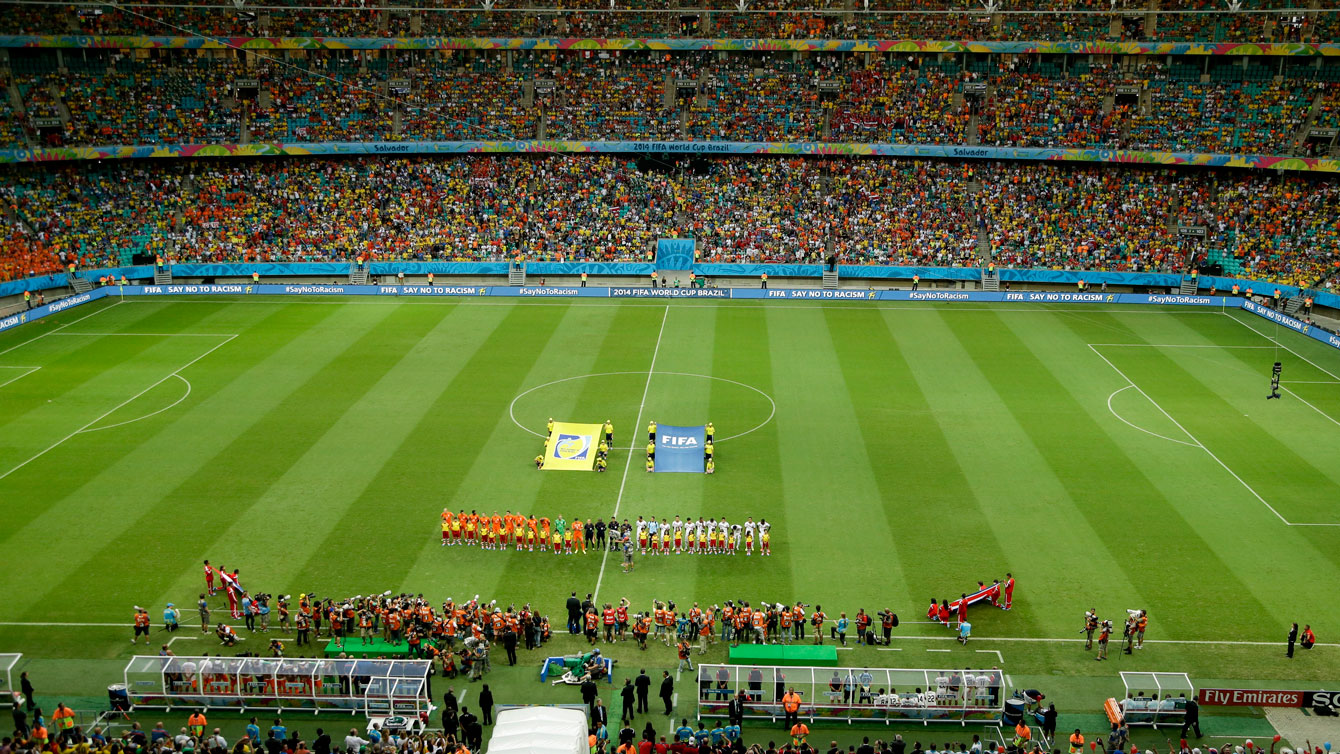
Fonte Nova Arena, Salvador, Brazil
What to see: take some good Instagram shots at the historic and beautiful neighbourhood of Pelourinho, which was the city’s centre during the Portuguese colonial period. If the day is warm, Porto da Barra Beach can be your destination.
What to eat: try Acarajé, a dish made from beans formed into a ball and then deep-fried in dendê (palm oil). It is stuffed with vatapá and caruru – spicy pastes made from shrimp, cashews and other ingredients.
São Paulo
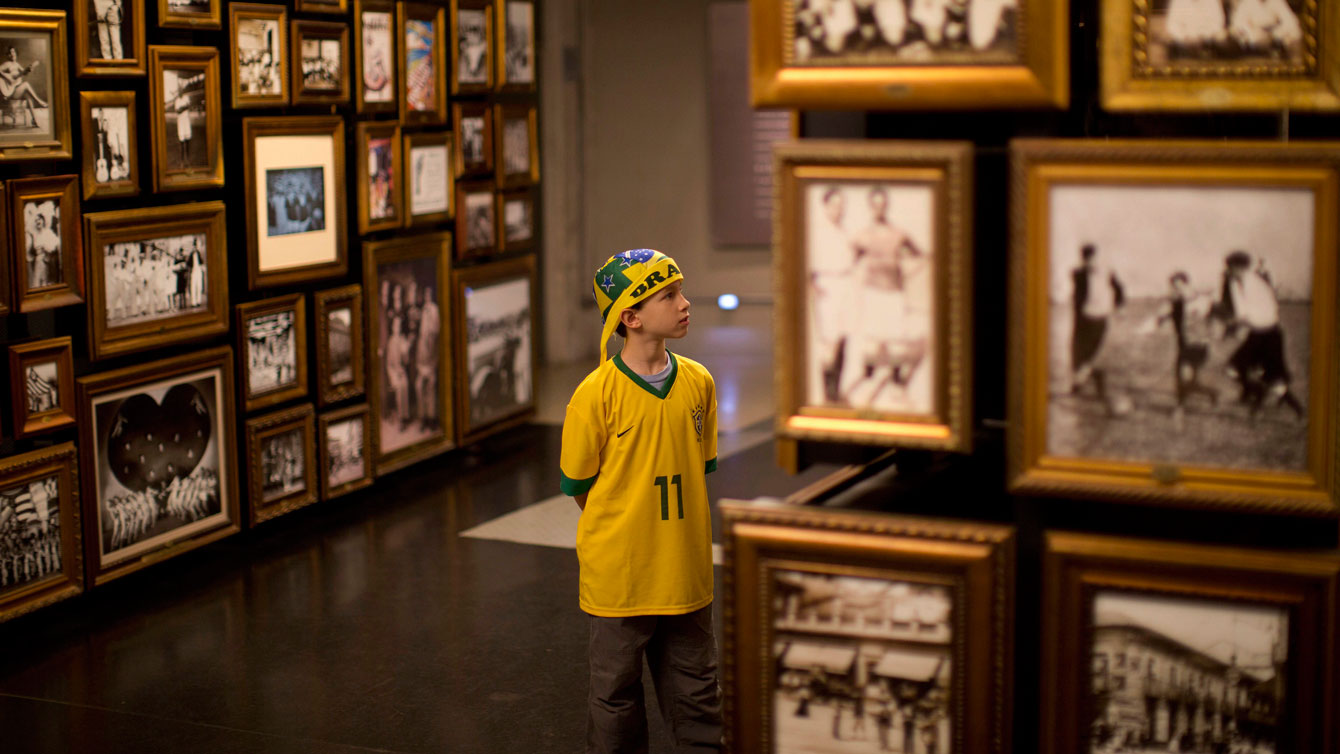
Museu do Futebol, a must-see point for football lovers
The capital of São Paulo state, São Paulo is the most populous city in South America, with a population of approximately 12 million, and it is the most influential Brazilian city.
The matches: women’s group stage – Canada v. Australia, Zimbabwe v. Germany, Canada v. Zimbabwe, Germany v. Australia; men’s group stage – Colombia v. Nigeria and South Africa v. Iraq; quarterfinals; men’s semi-final; women’s bronze medal match.
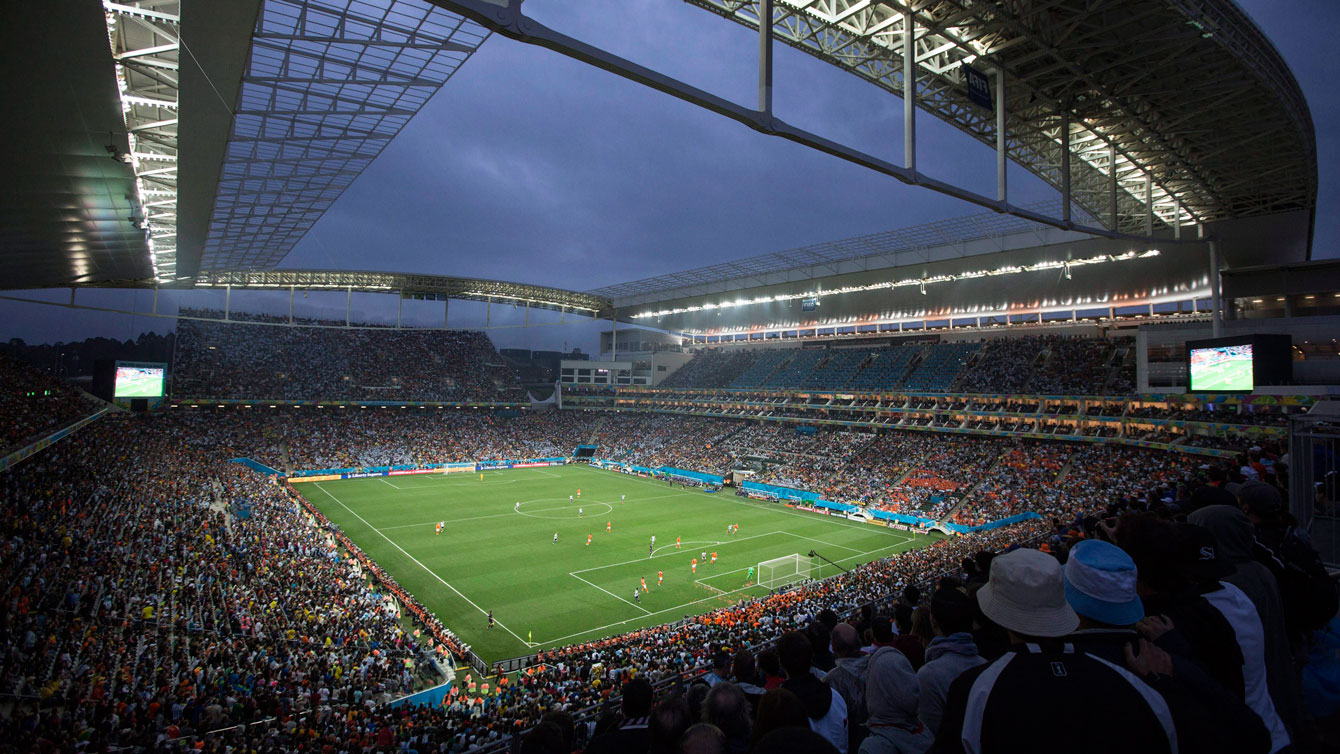
Corinthians Arena, Sao Paulo, Brazil
What to see: Museu do Futebol (Football Museum), an unmissable point for football lovers, and Avenida Paulista, which is one of the most important avenues in Brazil because of its large number of cultural and financial institutions.
What to eat: If you get hungry, try Pastel, a typical fast-food Brazilian dish, consisting of rectangle-shaped thin crust pies with fillings (ground meat, mozzarella, chicken, etc.) and fried in vegetable oil.

